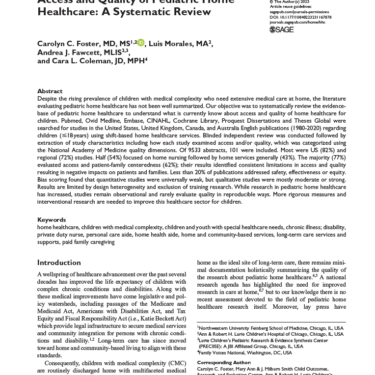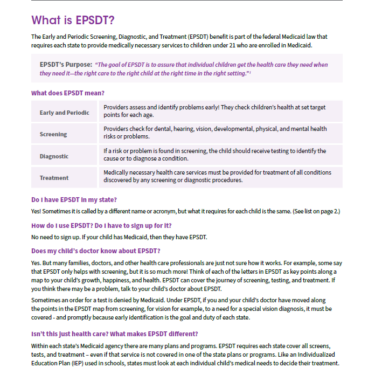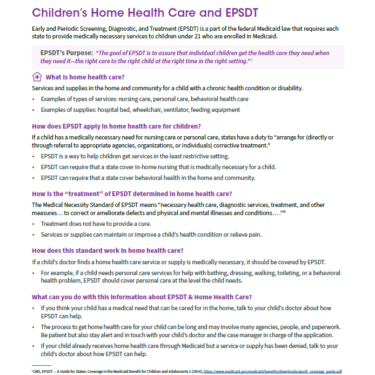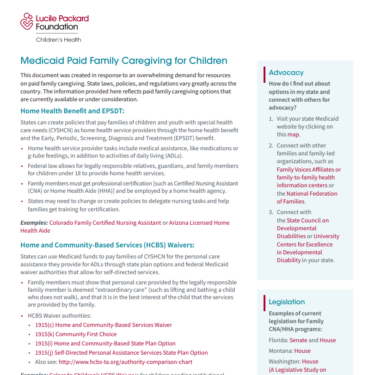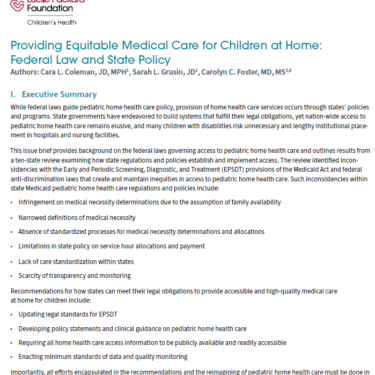Advancing a Family-Centered Evidence-Base for Pediatric Home Health Care
Organization: Ann & Robert H. Lurie Children's Hospital of Chicago
Primary Contact: Carolyn Foster and Cara Coleman
Grant Amount: $196,832 for 24 months
Date Awarded:
Purpose
The project aims to generate high-quality evidence regarding how state-level policies affect access to pediatric home health services. This evidence will form the basis for developing a more coherent, accessible system of home health care for children nationally.
